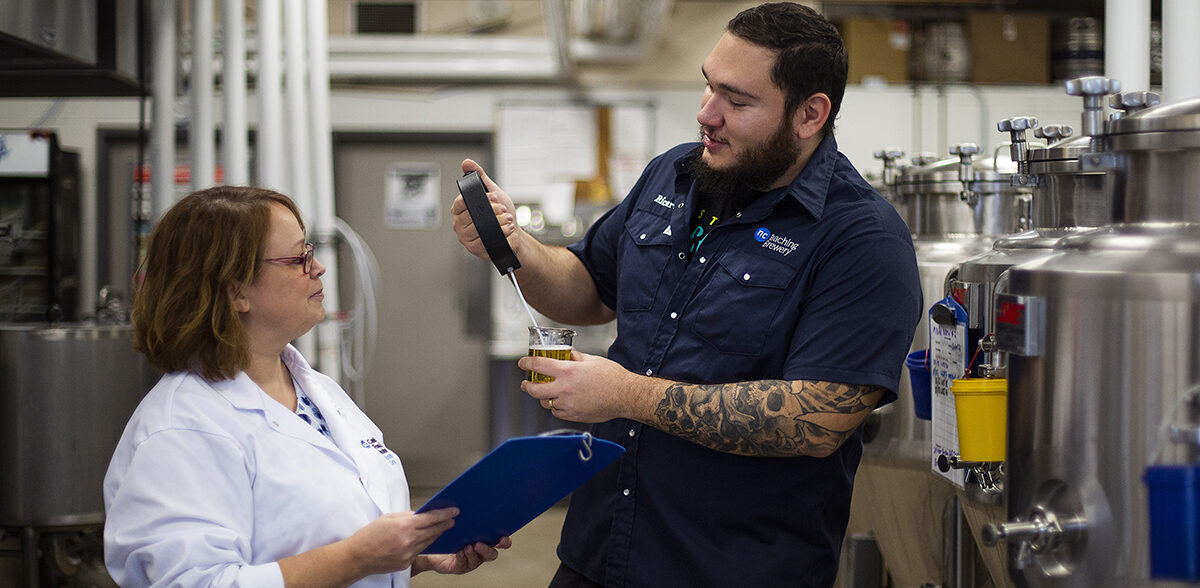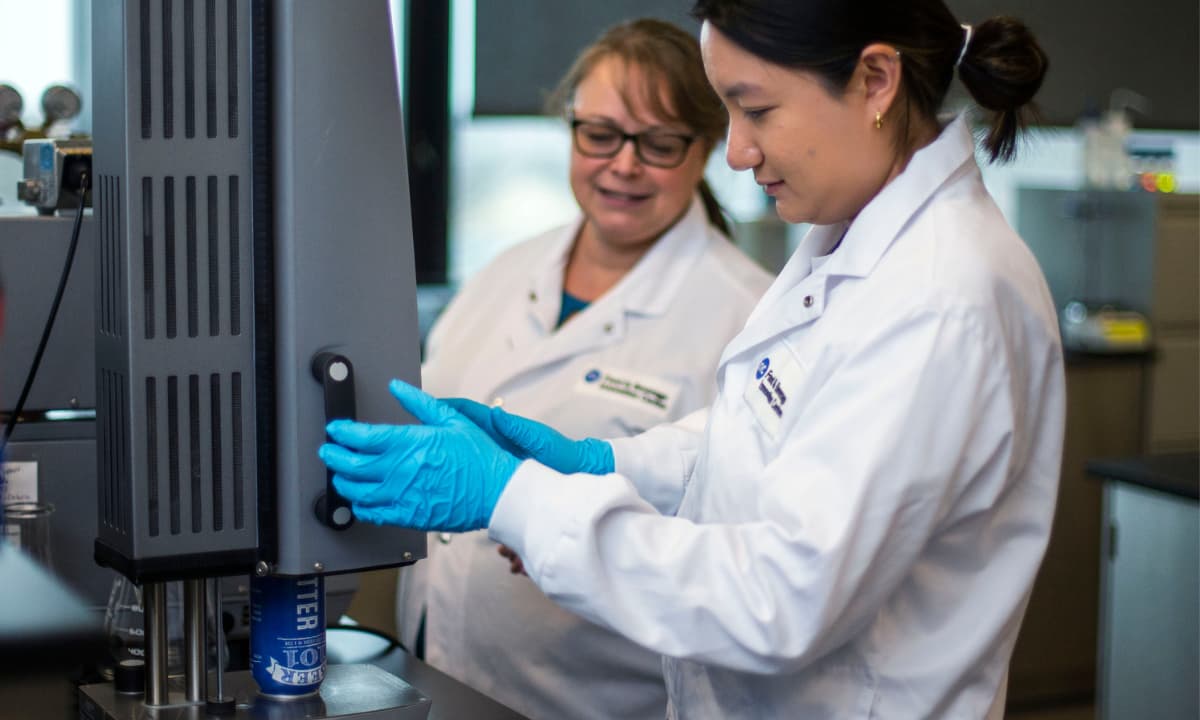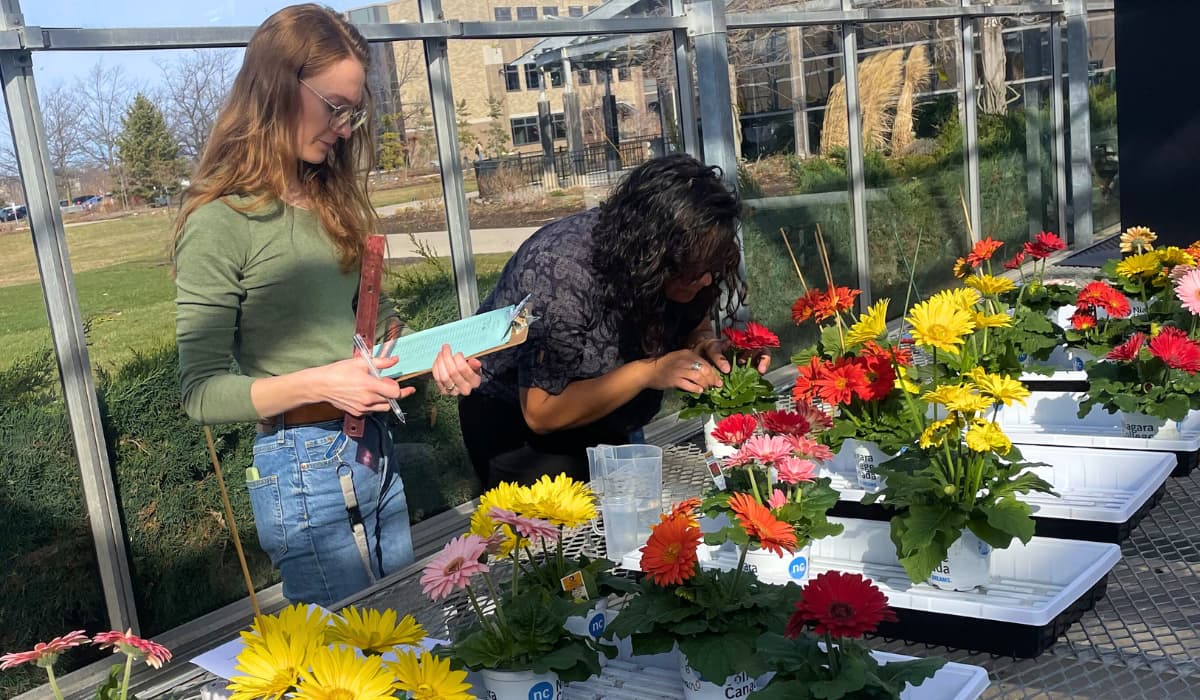OBJECTIVE
The goal of this study was to evaluate the effect of environmental control strategies used to control fungal diseases, and the efficacy of the biological control agents Aphidius matricariae and Chrysopa carnea, either alone or in combination, compared to a universal control, for control of the cannabis aphid Phorodon cannabis on Cannabis sativa.
CHALLENGE
The commercial cannabis industry currently struggles with integrated pest management (IPM) solutions, with specific challenges for the cannabis aphid Phorodon cannabis. Many licensed producers experience reduced yield, and some have lost a portion or even their entire crop, due to the pest’s devastating damage. Aphid parasitoids and predators are extremely efficacious, but fail to achieve desired levels of control in commercial cannabis growing facilities, with several plausible biotic and abiotic explanations for this lack of efficacy, but few have been investigated on cannabis plants due to its recent legalization.
SOLUTION
Koppert and Niagara College’s Horticultural and Environmental Sciences Innovation Centre partnered with each other to better understand how to optimize the use of biocontrol for this pest on cannabis, while considering impacts of environmental control strategies used to manage fungal diseases. The goal of this study was to evaluate the effect of environmental control strategies used to control fungal diseases, and the efficacy of the biological control agents Aphidius matricariae and Chrysopa carnea, either alone or in combination, compared to a universal control, for control of the cannabis aphid Phorodon cannabis on Cannabis sativa.
Greenhouse growers of various cropping systems around the world are able to regulate their environmental controls to optimize plant growth, while also successfully minimizing plant diseases. Cannabis growers technically should be able to achieve the same effect for most diseases during the vegetative growing cycle, thus potentially maximizing natural enemies’ performance.
This study investigated why IPM strategies for cannabis aphids fail in many commercial cannabis facilities across North America. The results demonstrated that sound cultivar selection and appropriate environmental set points can increase the efficacy of natural enemies by two to three-fold, without increased risk for fungal diseases. The findings could have a huge impact on the cannabis industry’s biological control strategies without impact or even improvement for disease control in their crop.
Funding: The project is being funded in part by the Niagara College-led Greenhouse Technology Network (GTN), through the Federal Economic Development Agency for Southern Ontario (FedDev Ontario).




